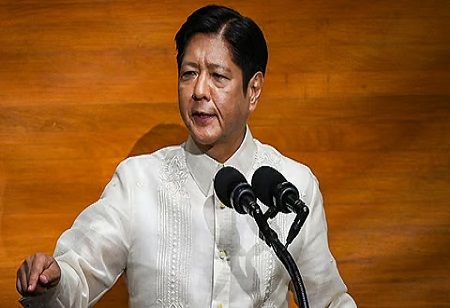- President Ferdinand Marcos Jr. approves World Bank-financed Project for Learning Upgrade Support and Decentralization (PLUS-D) to aid 21.2 million K-10 learners
- Senator Sherwin Gatchalian says PLUS-D will complement DepEd’s ARAL program and must be implemented efficiently to tackle the education crisis
- The ₱34.79B six-year project aims to decentralize education reform, train teachers, and improve learning outcomes through local interventions and digital tools
Senator Sherwin Gatchalian welcomed on Thursday the approval by Ferdinand R. Marcos Jr. of the World Bank-financed Project for Learning Upgrade Support and Decentralization (PLUS D) as this would further enhance the Department of Education's 'Academic Recovery and Accessible Learning' or ARAL program.
He said that the new project that will benefit approximately 21.2 million learners at the Kindergarten to Grade 10 level, will complement and support ARAL, which is lined up for funding in the 2026 national budget.
According to Gatchalian, both PLUS-D and ARAL must be implemented efficiently to ensure that government resources are employed properly to tackle the education crisis in the country. In his statement he stressed “Mahalagang tiyakin nating maipapatupad nang epektibo ang mga programang ito. Hindi puwedeng mabinbin o malustay ang mga proyektong tutugon sa krisis sa edukasyon (It is vital to ensure that these programs are implemented effectively. We cannot afford delays or misuse of projects meant to address the education crisis)”.
The Department of Education will lead PLUS-D, which is targeted at addressing learning losses, as well as decentralizing education reform by giving schools and regional offices more latitude in implementation. The six-year project will funnel resources and technical support to schools and regional offices for quicker, more local interventions.
Also Read: DepEd Urged to Hasten MATATAG Curriculum Implementation for K-10
The government counterpart funding under the project is pegged at PHP 3.47 billion, while the total cost of the project is approximately PHP 34.79 billion, which covers the training of teachers, provision of digital tools like laptops, and school-based accountability mechanisms that incentivize improved learning outcomes.
PLUS-D comes at a time when foundational learning and literacy recovery have been pinned as priorities by the education department, positioning it as one of the key levers in deepening the reach of system- and school-level interventions. It will complement the ARAL initiative by forging stronger links between central policy and local practice to bring in an agile and responsive approach toward addressing the learning challenges faced by Filipino students.
Senator Gatchalian's endorsement signals a high-level commitment to the ambitious reforms that PLUS-D introduces, yet his call for vigilance underscores the stakes: without effective execution, even well-intentioned programs can falter. The effectiveness of PLUS-D will depend not just on funding but on capacity, accountability, and sustained operational oversight at many levels in the education system.
As the Philippines works to recover from widespread learning setbacks, the alignment of the PLUS-D project with national reform efforts holds the promise for more targeted, decentralized, and results-driven education interventions.

